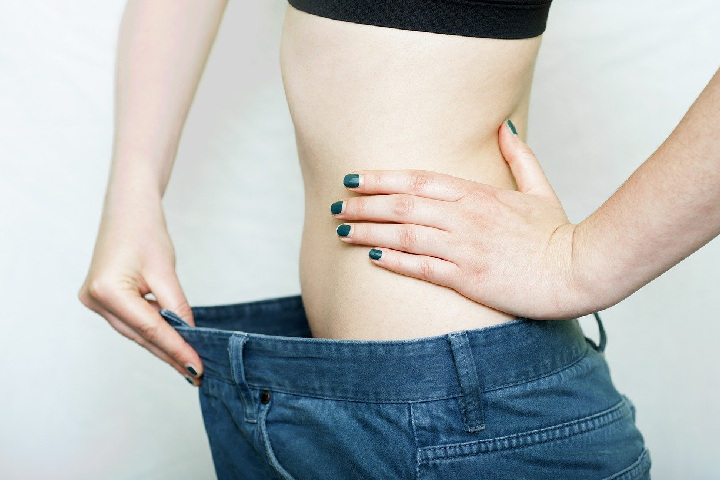Control Hunger: If we ate only when the body needs it, we would not get fat, but the problem is that we often do it without being hungry. Find out what’s behind that attitude and learn to keep it at bay. The hunger is not only a physiological need that tells you that the body needs to replenish nutrients.
The most unmistakable sign is that of an empty stomach, but sometimes this feeling does not correspond to real hunger. Finding out what pushes you to open the fridge even if you shouldn’t and learning to control it is vital so that the weight doesn’t skyrocket.
Why is Hunger Soaring
The reasons why you can eat without real control hunger are varied and sometimes unsuspected: lack of natural light, little sleep, always living under stress, or the additives that some foods include (such as aspartame or monosodium glutamate) can whet your appetite.

Some medications, such as corticosteroids, antiallergics, or antidepressants, can also cause hormonal alterations that stimulate the appetite more than usual.
How to Control Hunger Attacks
To control hunger, it will be beneficial to put into practice the tips that we suggest below.
Table of Contents
1. Start Using the Hunger Scale
With this control hunger Scale, you will differentiate the real physical hunger from the one in your head only when you feel like eating (even if you’ve already eaten) mark where you think between 1 and 10.
- Very hungry and weak
- Irritated and anxious
- Quite hungry, the stomach “rings.”
- With some hunger
- Neither hungry nor full
- Somewhat full but I would eat more
- Full. I’m not hungry anymore
- A little uncomfortable for having eaten too much
- Full and heavy
- My gut hurts from eating
Results
-The ideal is to eat when you are between the 3rd and 4th.
-It is not acceptable to wait to point at number 1 to eat, and if you are above number 5 or 6, you must bear in mind that indeed your hunger is psychological, it is not real.
2. When You Think You Are Hungry, Baby
Many times the need to drink is demented with hunger and this causes you to end up eating more when in reality, what your body requires to function is water and not solid food.
To avoid overeating, try drinking water before meals. Intake of the liquid produces a feeling of satiety, so if you have a glass before eating or when you sense like snacking something between meals, it helps reduce the amount of food you eat and, consequently, the calories.

It is also an excellent solution to start meals with a cup of homemade defatted broth. Calm the initial appetite and avoid eating large amounts of the next dish.
3. Try to Enjoy Natural Light
You may have noticed that the body asks us to eat healthier dishes in autumn and winter than in summer. Several studies have shown that just one more hour of natural light a day reduces the need for caloric foods.
And it is that light increases the production of serotonin, a neurotransmitter that regulates mood and prevents appetite from getting out of control. But natural light also helps avoid problems such as depression, insomnia, vitamin deficiency, or visual fatigue.
4. Try to Eat Something Hot
It is true that if it is not cold, it is more difficult (and you do not feel like it) to eat hot food, but it should be done even if it is warm dishes. The reason is that there are studies that show that hot foods send more signals of satiety to the brain than cold ones.
So if you temper a dish that you were initially going to drink cold, it will help you feel fuller and eat less. Try, for example, a warm garden vegetable or lentil salad. And avoid taking preparations directly from the fridge (for example, gazpacho or vichyssoise). It is best eaten at room temperature.
5. Eat Less, but More Times
The 5 meals a day rule is the best anti-decay formula. To avoid feeling hungry and down, divide the day’s meal into 5 or 6 regular meals : 3 main meals and 2 snacks (mid-morning and mid-afternoon). And don’t even think about not having breakfast or having pastries.
If you fast or eat fats and sugars (the body assimilates them quickly) in the middle of the morning, you will feel down, and to compensate, you will tend to eat very caloric foods. Between each meal, let approximately two to three hours pass and eat calmly.

This will permit you to keep your blood glucose levels stable and avoid lows. If you don’t, When you experience a drop in blood sugar, your body lacks energy, you have the feeling of not being well-fed, and your appetite for quick glucose is triggered.
6. Try Not to Have Food in Front of You
Seeing food at all hours can unbalance the appetite (and with it the diet) of anyone. It is clear that having appetizing foods insight or seeing how prepared can push you to consume them even if you are not hungry.
So avoid surrounding yourself with food and store food in cabinets, pantries, or drawers out of your sight.
7. Chew Slowly and Do Not Swallow Food
Chewing well promotes digestion because food reaches the stomach much more “crushed,” so this organ has less work. But it also helps you control the amounts you eat and realize that you are already “full.”
Keep in mind that fullness care usually occurs about 20 minutes after starting to eat, so if you chew fast and eat tense, you can swallow up to double or triple what you need.
Doctors recommend chewing at least 20 times each bite, and there are even studies show that if you chew 40 times, you release even more satiating hormone and eat less food.
8. Use a Large Fork and Small Plate
Do not serve yourself too large portions because you will surely finish everything on the plate even if you have eaten enough. Also, try using smaller plates and more massive silverware.
According to professors at the University of Utah (USA), there is a lag between when a person has eaten enough, and when their stomach feels full. To determine the latter, the brain looks at external elements. And you get the signal to have eaten more if the cutlery is large or the plate is empty.
9. Going for a Walk Helps You Regulate Your Appetite
That walking helps you lose weight is a reality. Doing it in the morning activates your metabolism, thereby burning calories faster and helping you lose excess weight.

But walking also supports the production of endorphins (the happiness hormone). Some studies assure that a good walk generates the same pleasure as having an ounce of chocolate, with what you eat less, and when you eat, you take just what you need.
10. Calm the Nerves With Vitamins and Minerals
There is a hunger called emotional and that in many people is triggered when they go through periods of stress or only when they are sad and low in spirits. Usually, it leads you to eat very caloric foods without measure even if you are already satiated.
To avoid going to this extreme, eat a balanced diet rich in foods that contain vitamin B6, folic acid, and tryptophan. These nutrients favor the production of serotonin, a key neurotransmitter, especially in those who eat just when they are not well emotionally.
And is that serotonin intervenes, on the one hand, in the proper functioning of the nervous structure (and therefore helps you feel better) and also regulates appetite. Natural sources of these nutrients are brewer’s yeast, nuts, whole grains, eggs, meats, green leafy vegetables, or bananas.

